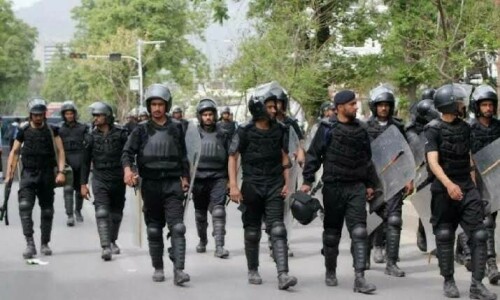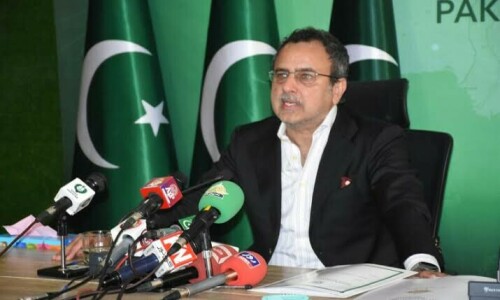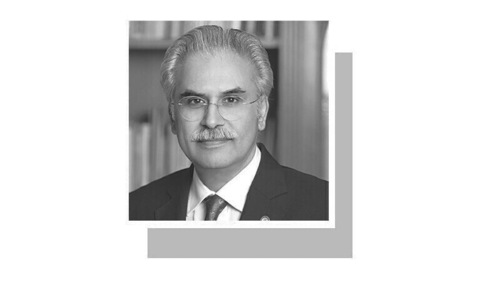ISLAMABAD: Moving swiftly to meet a pre-condition of the International Monetary Fund (IMF) for an economic bailout, the National Electric Power Regulatory Authority (Nepra) on Friday approved for notification Rs7.91 per unit increase in ‘uniform national tariff’ and its application in three phases.
The Nepra had conducted the public hearing on the government request on July 20 and within 48 hours approved it without any change. “The authority [Nepra] has approved the request of the federal government,” an announcement said. The Power Division would now send the notification to the Discos for implementation with immediate effect.
“As per the request, the consumer-end tariff will be increased in three phases i.e. July, Aug-Sept and October onward,” said a Nepra announcement. No increase has been proposed for lifeline (up to 100 units) and protected category of consumers (101-200 units per month), it added.
The Nepra announcement said the decision would be applicable with the government notification. As such, the average tariff increase would become effective at the rate of Rs3.50 per unit during the current month, followed by another Rs3.50 per unit in August-September billing and the remaining 91 paise per unit in October. The rates would be equally applied across the country, including K-Electric.
The Nepra said it had already determined different consumer-end for each power distribution company (ex-Wapda Discos) on June 2 for this fiscal year under which “national average tariff is now Rs24.82 per kWh, higher by Rs7.91per kWh than the earlier determined national average tariff of Rs16.91/kWh”. Based on this determination, the government requested approval of a uniform consumer-end tariff after incorporating subsidies and surcharges for all the ex-Wapda Discos and K-Electric.
The tariff for certain high-consumption residential consumers has been increased by Rs11 per unit to cover the additional burden of consumers with lower consumption. The approved rate under the ‘tariff rebasing 2022-23” for consumers with a monthly consumption slab of 101-200 units and above is significantly higher than Rs7.91 per unit increase in the uniform national average.
Besides the massive cross-subsidisation among various consumer slabs, the government would still be providing Rs234bn subsidy, Rs220bn for distribution companies of ex-Wapda and Rs14bn for K-Electric finance the tariff rebasing cost of poor consumers.
The consumers using fewer than 100 units and falling in the non-protected category shall now be charged Rs13.48/unit instead of Rs19.56/unit suggested by Nepra and the consequential revenue differential shall be adjusted in various categories.
The increase in power rates for consumers of the ‘unprotected category’ using up to 100 units per month would be higher by about Rs4.06 per unit instead of Rs7.91 worked out by Nepra and hence this burden has to be passed on to the higher consumption categories.
The base tariff for those consuming 101-200 has increased by Rs7.21 per unit in phases to Rs18.95 while the rate for 201-300 per month has gone up by Rs8.31 to Rs22.14 per unit. The rate for 301-400 units has been increased by Rs4.30 per unit to Rs25.53, while the rate for 401-500 units has gone up by Rs6.51 per unit to Rs27.74.
Likewise, the base rate for 501-600 units is now increased to Rs29.16 per unit, up by Rs7.93 and that of 601-700 unit rate is fixed at Rs30.30 per unit, showing an increase of Rs8.97 per unit.
The base tariff for consumption above 700 units per month has gone up to Rs35.22 per unit, with an increase of Rs11 per unit. The base rate for the time of use (TOU) meters would go up by Rs10.06 to Rs34.39 for peak consumption hours and Rs28.07 per unit for off-peak hours.
The base tariff increase is on top of monthly fuel price adjustments that have ranged between Rs6-8 per unit in recent months. The government has already withdrawn with effect from June 8 a subsidy of about Rs5 per unit introduced by former premier Imran Khan on Feb 28.
The tariff increase would generate additional revenue of Rs893 billion in 2022-23 to meet the annual revenue requirement of about Rs2.52 trillion to power companies, excluding KE besides providing a general sales tax of more than Rs425bn to the government.
Published in Dawn, July 23rd, 2022











































